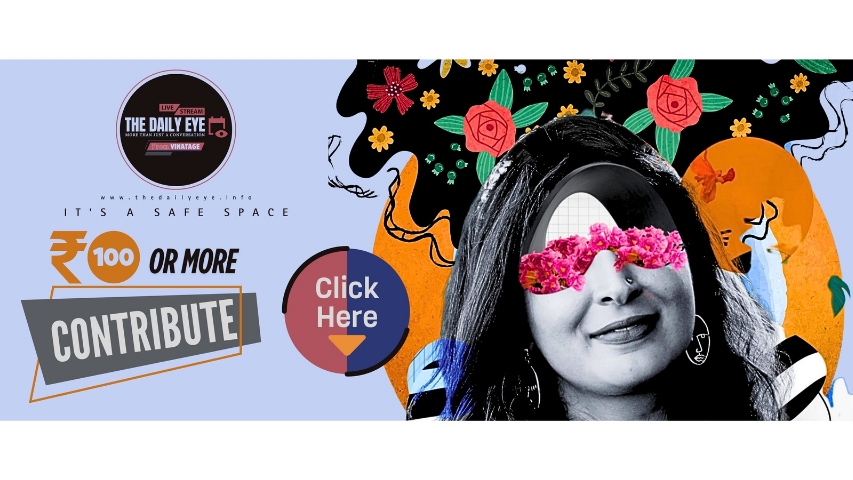
BOLLYWOOD: SUNNY SANSKARI KI TULSI KUMARI
by Arnab Banerjee October 6 2025, 12:00 am Estimated Reading Time: 4 mins, 18 secsBollywood Comfort Food, Reheated with Extra Ghee (and a Side of Confusion): A formula-driven rom-com that leans on wedding chaos, familiar tropes, and half-hearted feminism-lite, Sunny Sanskari Ki Tulsi Kumari serves up Bollywood comfort food—warm, familiar, but undeniably stale.
Cast: Varun Dhawan, Janhvi Kapoor, Sanya Malhotra, Rohit Saraf, Maniesh Paul, Akshay Oberoi, Abhinav Sharma, Manini Chadha
Director: Shashank Khaitan
Music Score: John Stewart Eduri
Songs: Tanishk Bagchi, A.P.S, Sachet–Parampara, Guru Randhawa, Rony Ajnali, Gill Machhrai
Rating: ★★☆☆☆
Can two ex-lovers rekindle an old flame, amicably, no less? Even if it involves impersonations, preposterous plans, and enough emotional confusion to make Freud reconsider his career path?
Of course they can—especially if they're in a 135-minute Bollywood rom-com, a genre that continues to churn like a butter factory run by hopeless romantics. Now, while global cinema gallops into bold territories—where genre-bending narratives and offbeat themes are embraced with open arthouse arms—our beloved Hindi films remain steadfast in their commitment to unearthing every last angle of the same timeless theme: love.
Romance, passion, longing, betrayal, heartbreak, reunion. Rinse. Repeat. Remix. And yet, we keep watching. Because even when the formula is as familiar as a shaadi ka buffet, there's always that sliver of hope that someone might serve the samosas with a twist.
The Plot and the Chaos
Enter: Sunny Sanskari Ki Tulsi Kumari
Written and directed by Shashank Khaitan (of Dulhaniya cinematic universe fame) and produced by Dharma Productions, the film features a youthful ensemble led by Varun Dhawan, Janhvi Kapoor, Sanya Malhotra, and Rohit Saraf. Maniesh Paul and Akshay Oberoi turn up in supporting roles—and we do mean “turn up,” often with maximal volume and minimal subtlety.
The plot? Buckle up.
Sunny (Dhawan) loves Ananya (Malhotra). Tulsi (Kapoor) loves Vikram (Saraf). Then, as if by divine rom-com intervention, both couples are unceremoniously dumped. In true cinematic symmetry, the heartbroken exes Ananya and Vikram are pushed into an arranged marriage by their well-meaning but tone-deaf families.
Cue chaos: To sabotage the wedding and win back their respective beloveds, Sunny and Tulsi pretend to be a couple. What follows is a five-day wedding spectacle bursting with dance numbers, elaborate rituals, emotional blackmail, and the occasional sermon on patriarchy (delivered, naturally, mid-sangeet).
Drama? Check.
Confusion? Double check.
A wedding planner with more screen time than plot relevance? Absolutely.
Maniesh Paul, as the frantic event coordinator, tries valiantly to inject humour into the proceedings, but the gags feel reheated. Vikram’s family, meanwhile, consists of the usual suspects: an overbearing mummyji, a serious bada bhai (Oberoi), and a bhabhi (Manini Chadha) desperate to break free from patriarchy—but only after she's served chai.
As expected, amid the ruckus, new feelings blossom. Old ones are reassessed. And the film meanders through all the usual dance-offs, misunderstandings, and heart-to-hearts until it lands at a happy ending more predictable than the DJ playing Gallan Goodiyan at an Indian wedding.

The Writing, Performances, and Missed Chances
Khaitan, who once had a knack for revitalising old-school tropes (Humpty Sharma, Badrinath), now appears creatively marooned—repackaging past successes without much new seasoning. The film prefers the safe comfort of formula over the risk of reinvention. Think of it as cinematic leftovers: still edible, mildly enjoyable, but definitely not Michelin-starred.
Worse still, when the film tries to be "woke," it ends up fumbling the ball entirely. Sunny suddenly delivers a monologue on women’s rights, Tulsi confronts societal expectations, and the film tiptoes around modern themes with the elegance of a drunk baraati. It’s all very #feminism-lite™—served with a ladle of melodrama.
Performances? A mixed bag.
Janhvi Kapoor and Sanya Malhotra switch between earnest and energetic with reasonable grace. Rohit Saraf is charming, especially in the dance numbers—someone give the man a choreography-based rom-com already.
Varun Dhawan, though, seems trapped in a loop. After showing promise in October and Badlapur, he’s back to playing the hyperactive, love-struck lad with a heart of gold and the emotional depth of a kiddie pool. His comic timing? Serviceable. His emotional beats? Distracting. He deserves better, frankly—so do we.
The writing (credited to a medley of hands) swings between romantic comedy and family drama, but never quite sticks the landing in either. What could’ve been zany and heartfelt ends up being a genre cocktail with too much syrup and not enough spirit. 
The Music and the Final Word
What does work?
The music, thankfully. Tanishk Bagchi, A.P.S, Sachet–Parampara, Guru Randhawa, Rony Ajnali, and Gill Machhrai deliver a foot-tapping soundtrack. “Panwaadi” stands out—a bona fide earworm destined for many wedding playlists.
Final verdict?
Sunny Sanskari Ki Tulsi Kumari is the cinematic equivalent of comfort food: familiar, filling, occasionally fun. But just like reheated biryani, it loses steam without the freshness. A little spice, a little risk, and maybe—just maybe—less reliance on shaadi season tropes could have made this one sparkle.
Instead, it fizzes briefly... then flattens. Much like a soft drink left open at the sangeet.




-173X130.jpg)
-173X130.jpg)


-173X130.jpg)


